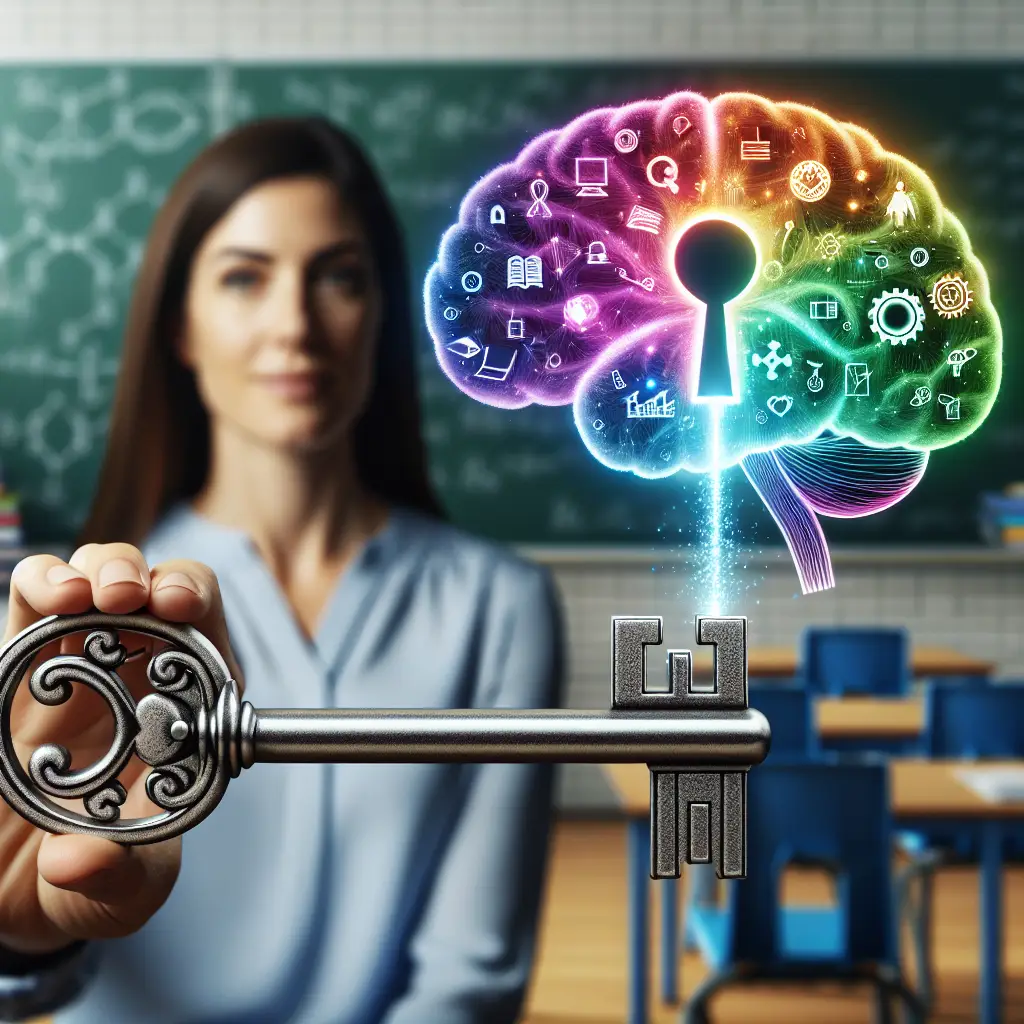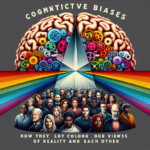
Unlocking Potential: Understanding the Link Between Learning Disabilities and Executive Functioning
Introduction
Every child possesses unique strengths and areas for growth, but for some, those areas may be significantly impacted by learning disabilities and executive functioning challenges. Unlocking potential lies not merely in the pursuit of knowledge but in understanding the intricate relationship between these two factors. When we delve into the concept of "Unlocking Potential: Understanding the Link Between Learning Disabilities and Executive Functioning," we uncover a pathway that enables children to thrive academically and emotionally, transforming perceived limitations into avenues for success.
Learning disabilities, such as dyslexia, dyscalculia, and ADHD, often manifest in ways that hinder a child’s ability to learn effectively. Simultaneously, executive functioning encompasses the cognitive processes that include working memory, flexible thinking, and self-control—essential skills for managing daily tasks and responsibilities. Understanding how these two domains intersect can help educators, parents, and professionals create a comprehensive support system that empowers individuals with learning disabilities to achieve their fullest potential.
Understanding Learning Disabilities and Executive Functioning
What Are Learning Disabilities?
Learning disabilities are neurological disorders that affect the brain’s ability to receive, process, and respond to information. According to the National Center for Learning Disabilities (NCLD), approximately 1 in 5 students has a learning disability. These disabilities can affect a student’s ability to read, write, do math, or understand information, making traditional teaching methods ineffective.
The Role of Executive Functioning
Executive functioning refers to a set of mental skills that regulate our actions and thoughts. These include:
- Working Memory: The ability to hold and manipulate information.
- Cognitive Flexibility: The capacity to adapt to new situations and switch between tasks.
- Inhibitory Control: The skill to suppress impulsive responses and maintain focus.
When learners struggle with executive functioning, they may face difficulties in organization, prioritization, time management, and emotional regulation—essential skills that can significantly impact their academic performance and daily lives.
The Intersection of Learning Disabilities and Executive Functioning
The connection between learning disabilities and executive functioning is undeniable. Research has shown that children with learning disabilities often exhibit executive dysfunction, which can lead to a cycle of frustration and lowered self-esteem. For instance, a child with dyslexia may find reading challenging, leading to anxiety and avoidance of reading tasks—a situation exacerbated by difficulties in managing emotions and attention due to executive functioning deficits.
Case Study 1: Emma’s Journey with Dyslexia and ADHD
Emma, a bright and imaginative second grader, struggled with reading and attention. Diagnosed with dyslexia and ADHD, she often faced challenges in completing her homework. Her teachers noted that her working memory issues made it difficult for her to remember multi-step instructions. With targeted interventions, including reading support and executive functioning strategies like checklists and visual schedules, Emma began to flourish. This transformation showcasing the link between learning disabilities and executive functioning—the tailored support helped her unlock her potential.
The Implications for Education and Support
Understanding the relationship between learning disabilities and executive functioning can inform effective educational practices. This knowledge leads to the development of strategies that create supportive learning environments. Here are essential considerations for educators and parents:
1. Individualized Education Plans (IEPs)
IEPs provide tailored educational experiences based on a child’s unique needs. Incorporating executive functioning support within an IEP can enhance the learning experience for children with learning disabilities.
2. Teaching Metacognitive Strategies
Metacognitive strategies encourage students to think about their thinking. This might include:
- Self-monitoring: Checking in on one’s understanding.
- Goal-setting: Creating clear, achievable objectives.
- Reflection: Analyzing successful and unsuccessful strategies.
3. Utilizing Assistive Technologies
Tools like text-to-speech software, organizational apps, and digital planners can provide significant assistance to students with learning disabilities and executive function challenges. They essentially act as scaffolding, supporting students in managing their tasks more efficiently.
Tables: Strategies for Executive Function Support
| Strategy | Description | Benefits |
|---|---|---|
| Visual Schedules | Create clear expectations for daily tasks. | Increases organization and reduces anxiety. |
| Checklists | Use step-by-step lists for complex tasks. | Improves task completion and accountability. |
| Mind Mapping | Visual tool to organize thoughts and ideas. | Enhances cognitive flexibility and creativity. |
| Time Management Apps | Utilize timers or scheduling apps to structure tasks. | Aids in prioritizing activities and sustaining focus. |
| Breaks and Movement | Incorporate physical movement during learning sessions. | Boosts focus and reduces fatigue. |
The Importance of Family and Community Support
Family and community involvement play a critical role in unlocking potential. Parents equipped with knowledge about learning disabilities and executive functioning can advocate for their children, fostering resilience and a growth mindset. Further, creating a supportive environment at home—where failures are reframed as learning opportunities—helps children build confidence.
Case Study 2: Alex’s Supportive Community
Alex, who has a learning disability, benefited tremendously from engagement with both family and school support systems. His parents educated themselves about his challenges, actively participated in IEP meetings, and collaborated with teachers. Alex’s community rallied around him, providing tutoring and mentorship. As a result, his confidence soared, allowing him to embrace learning with renewed enthusiasm.
Promoting Resilience and Growth Mindset
Unlocking potential means fostering resilience, which is particularly significant for students with learning disabilities and executive function difficulties. Educators and parents can cultivate resilience through:
- Encouraging a growth mindset: Reinforcing that effort leads to improvement.
- Celebrating small victories: Acknowledging progress fuels motivation.
- Teaching coping strategies: Equipping students with tools to navigate challenges.
Bridging the Gap: Professional Development for Educators
To effectively address the needs of students with learning disabilities, educators must engage in ongoing professional development. Understanding the link between learning disabilities and executive functioning can empower teachers to implement effective teaching strategies.
- Workshops on executive function strategies: Providing educators with tools to incorporate these strategies into their classrooms.
- Collaborative learning communities: Encouraging teachers to share resources and support each other in fostering inclusive classrooms.
Conclusion
Understanding and navigating "Unlocking Potential: Understanding the Link Between Learning Disabilities and Executive Functioning" is crucial for creating inclusive, supportive environments that allow all children to thrive. By recognizing the intersection of learning disabilities and executive functioning, we can provide tailored interventions, cultivate resilience, and ultimately help unlock each child’s unique potential.
As we conclude, let us reflect on the journey of learning and the power of understanding. Children like Emma and Alex remind us that with the right support, every student can flourish academically and develop skills that extend beyond the classroom. We have the opportunity to transform challenges into triumphs, equipping our youth with the tools to succeed in a dynamic world.
FAQs
1. What are the most common types of learning disabilities?
Common types include dyslexia (reading difficulties), dyscalculia (math difficulties), dysgraphia (writing difficulties), and ADHD (attention deficit hyperactivity disorder).
2. How can I help my child with executive functioning issues?
Try implementing visual schedules, checklists, and setting clear expectations. Additionally, encourage the use of organizational tools like planners and apps.
3. Can executive functioning skills be improved?
Yes, executive functioning skills can be developed through targeted strategies, practice, and support from educators and parents.
4. How do learning disabilities affect social skills?
Learning disabilities can hinder a child’s ability to interact socially, often stemming from frustration and low self-esteem. Support systems, such as social skills training, can help navigate these challenges.
5. What role does the school play in supporting students with learning disabilities?
Schools are vital support systems, providing tailored IEPs, specialized teaching methods, and access to resources that foster an inclusive and supportive learning environment.
Unlocking the potential embedded within learners with disabilities is not merely a hopeful notion; it is a collective responsibility we can achieve with concerted efforts in education, family involvement, and community support. The journey may be complex, but each step towards understanding is a stride towards empowerment.










